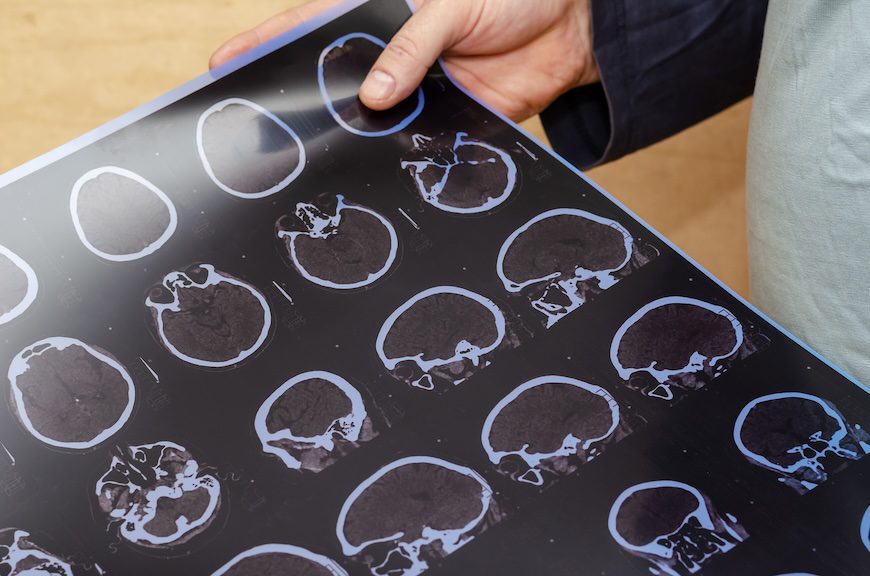Growing old can be a pain – both literally and figuratively. But, as Michael Caine once pointed out, it beats the alternative. And we’re all getting older. The United Nations estimates that the number of people over the age of 65 will double over the next 25 years – to 1.6 billion. Now, a rash of new studies – perhaps in response to this irreversible trend – reinforce something most of us already know: Aging is hard.
Shingles Drives Up Risk of Cognitive Decline
One of the lesser-known side effects of aging – and the subsequent weakening of the immune system – is the increasing risk of shingles. The U.S. Centers for Disease Control and Prevention (CDC) figures that about one out of every three Americans will contract shingles in their lifetime.
Shingles, caused by a flareup of the varicella-zoster virus (VZV), can result in painful rashes And now we have data that suggest a link to cognitive impairment, especially in anyone carrying the APOE4 gene.
New research out of Brigham and Women’s Hospital shows that even a single episode of shingles can increase one’s risk of long-term cognitive decline by 20 percent. The study, which appears in Alzheimer’s Research & Therapy, underscores the importance of the shingles vaccine in potentially reducing both shingles and subsequent cognitive issues.
Sharon Curhan, MD, a corresponding author, stressed the need for public health initiatives to promote the shingles vaccine.
The study analyzed data about more than 149,000 participants from three larger-scale health studies, comparing those who had shingles with those who didn’t. The results revealed a notable 20 percent jump in the risk of subjective cognitive decline, especially among men with the APOE4 gene. The researchers didn’t observe the higher risk among female patients.
While the researchers didn’t uncover the precise mechanics that tie shingles to cognitive decline, the authors theorized that it might involve vascular damage, brain inflammation, or nerve damage.
“We’re evaluating to see if we can identify risk factors that could be modified to help reduce people’s risk of developing shingles,” Curhan said in a press release. “We also want to study whether the shingles vaccine can help reduce the risk of adverse health outcomes from shingles, such as cardiovascular disease and cognitive decline.”
Severe Menopause Symptoms Might Threaten Brain Health
As the global population ages, dementia rates keep rising, too, with up to 4.6 million new cases cropping up every year. Most expect the most prevalent form of dementia, Alzheimer’s, to double by 2040, threatening more than 81 million people.
While a cure remains elusive, scientists insist that as many as 40 percent of those cases are preventable – or slowed – by looking at risk factors.
A new study – published in Menopause, the journal of The Menopause Society – has revealed that severe menopause symptoms, such as hot flashes and depression, can impair cognitive function among women in menopause.
The project, involving nearly 1,300 late-postmenopausal women across nine Latin American countries, highlights the potential impact of these symptoms on memory, attention, language, and executive function.
This new research points to the role of hormonal changes during menopause, particularly the drop in estrogen, which could heighten the risk of cognitive decline. The study results hint at the complicated interactions between hormonal, lifestyle, and sociodemographic factors in cognitive health.
“This study showed a potential link between severe menopause symptoms and cognitive impairment in midlife women,” Stephanie Faubion, MD, medical director for The Menopause Society, explained. “The results also suggest a protective effect of lower body mass index, higher educational level, physical exercise, hormone therapy use, and sexual activity on cognition, highlighting the potential for targeted interventions to protect and preserve cognitive function in menopausal women.”
Dogs Help Keep Depression At Bay
But it’s not all bad news. Another new study shows a connection between pet ownership, dogs in particular, and lower levels of generalized anxiety and depression in older women.
Women who’d survived abuse in childhood, for example, showed an even stronger link between dog attachment and reduced symptoms of anxiety and depression.
On the other hand, cat ownership failed to exhibit similar mental health benefits.
This cross-sectional study involved 214 women, more than 72 percent of whom reported childhood abuse. Researchers used the Lexington Attachment to Pets Scale (LAPS) to measure pet attachment and assessed mental health using various scales for depression and anxiety.
These promising results suggest that strong bonds with dogs can serve as a protective factor against depression and anxiety, particularly for vulnerable groups such as those with a history of childhood abuse.
The study adds to our growing understanding of how the human-animal bond can influence mental health, particularly among those who are already struggling with insecure attachment styles because of trauma earlier in life. These results underscore the potential of pet attachment as a therapeutic or preventive strategy for improving mental health among higher-risk populations.
Further Reading
Lack of Purpose in Old Age Could Hasten Dementia
Herpes Zoster and Dementia: A Nationwide Population-Based Cohort Study



